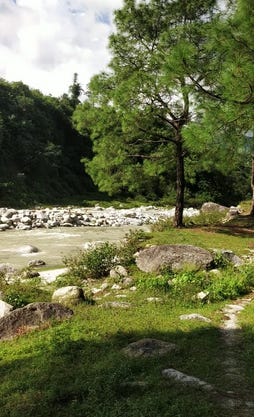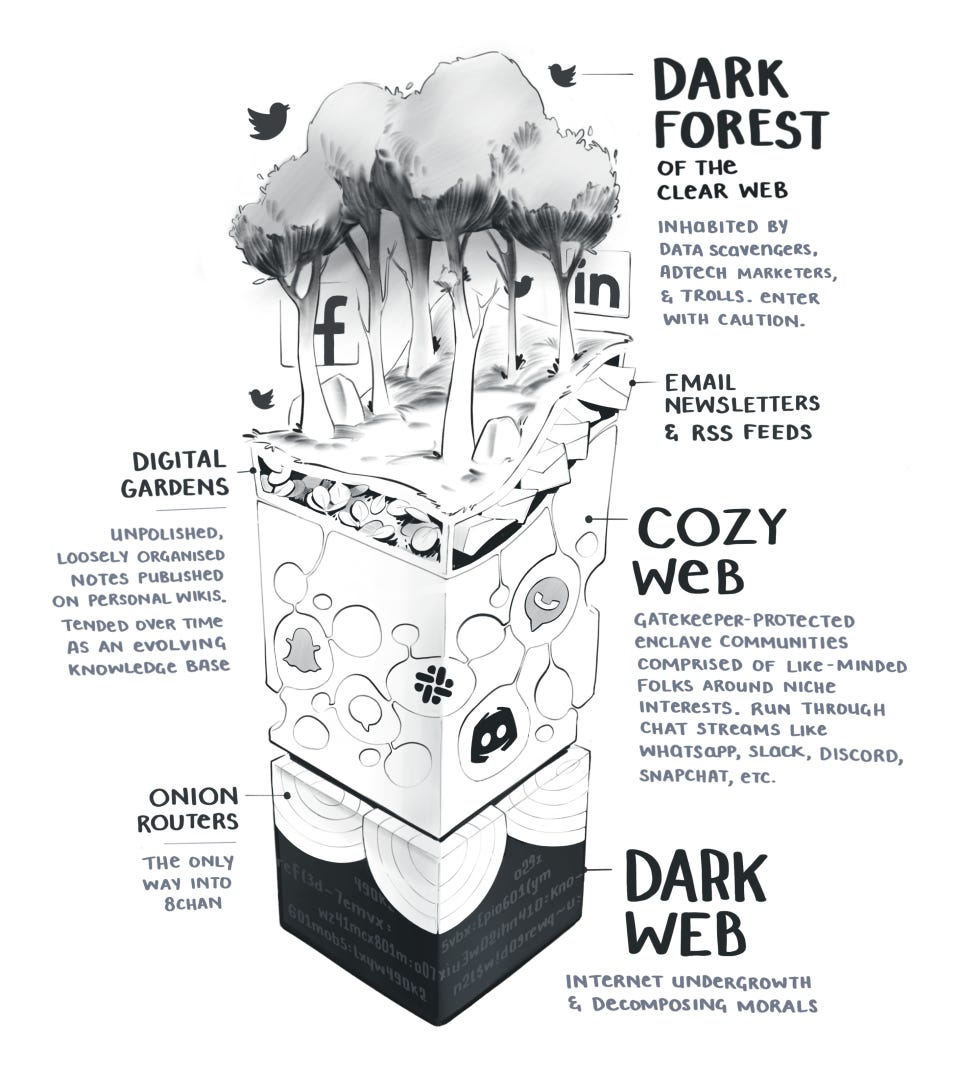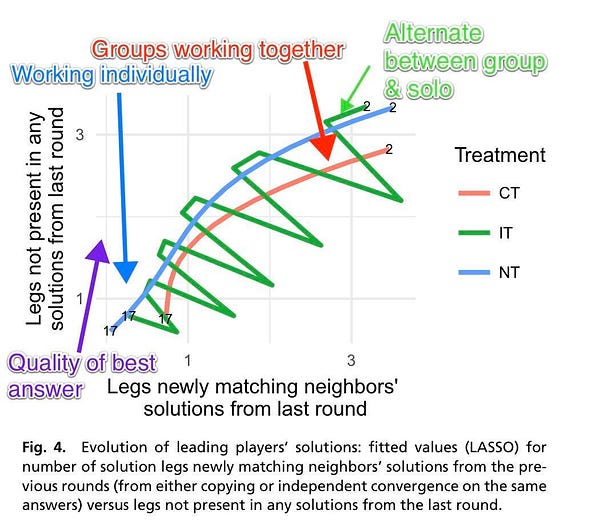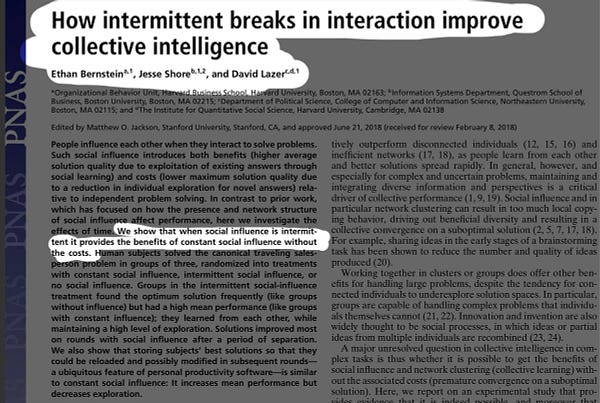Hello from the Himalayas,
Before I start this note, I am happy to report that my long walk into the exurbia last weekend rewarded me with the discovery of this new take-it-easy spot. Last Saturday afternoon, the sun was out and I was itching to be into the open nature after weeks of indoor seclusion. I went on a long walk into the woods and found a tiny patch of sand, along the riverside. I decided it to be my afternoon spot and enjoyed every bit of the sneaky sun, after the constant rains of monsoon for last 6 weeks — by skipping stones into the river and faux-practicing taekwondo in the shade of the trees. 😄

Indies in the Space
This week I read in a recent newsletter issue The Way of the Mercenary(paywalled) of Venkatesh Rao, about the tendency of Indies to adopt the mercenary worldview to find lucrative opportunities in the reality-gaps of missionaries’ planning maps and curated narratives. Venkatesh mentioned the story of John Hawkwood, a famous military freelancer of 14th century Europe. While Venkatesh explored the historical examples of indies charting their own story amidst a constant flux of war and competing narratives, I am more curious about doing the same for future examples of 21st century indies. This implies that mine will be an imaginative exploration of future possibilities instead of already-established ways to live a free-agent lifestyle.
The latest TV show I am watching is The Expanse. It’s a 21st-century space-fiction show, set sometime in the 23rd century. Humanity has colonized the moon(called Luna), both the Earth and Luna are governed by a single government called The United Nations, headquarted in New York. Mars colony has gained independence from the Earth and the Congressional Republic of Mars has built a more-advanced space-navy. Apart from these two entities vying for supremacy, there are the Belters — people who belong to neither of these two habitable planets. They live in the space-stations scattered along the space-highways or on barely-habitable planets. Here is the trailer for you to get a visual idea of what this world looks like:
The Belters have no recognized government and follow local norms instead of regulations. The Inners (people from the Earth and the Mars) have thier own established governments with uniform regulations, trained forces and space-fleets.
Belters have no single banner they unite under — they are opportunistic bands and solos hitching rides on spaceships and exploring new gigs and ventures on different planets and space stations.
Belters go beyond the charted space — they go into the dark — parts of space where even communications and navigation are shaky, let alone places with ready infrastructure for long-term habitability.
Belters are scrappy— they use the refurbished spaceships that they either got for cheap on some exchange market or they stole from some Inner crew on a project.
Belters have diversity of lifestyles — they include the ones who are shaping the course of the solar system via new planetary discoveries as well as those who are fighting among themselves or robbing the Inners to scrape enough to survive. From gangster-pirate Belters (Anderson Dawes & Klaes Ashford) to specialist-gigster Belters (spaceship engineer Naomi Nagata and botanist Prax Meng).
The lead characters are a crew of 4 Indies- 1 from Mars, 1 from the Belt and 2 from the Earth. They are on a salvaged (martian) spaceship and they hang around on the space-highways where the real action is happening — to hunt new opportunities as space-gigsters.
The Webverse
"We are the middle children of history. Born too late to explore earth, born too early to explore the galaxy. But born just in time to explore the webverse." — Unknown
To start, I want to quickly orient you to where I am and where we are headed. Our medium-term future has VR neighborhoods, crypto-states, cyborg parties, AI-run offices, robot factories and space-ventures(before homesteading the mars) but for our near future(at least until 2030) — the frontier still lies on the webverse.
Webverse includes the mainstream web-towns of social-media, popular browsing websites with news-entertainment-education, web-spaces holding economy infrastructure(banking, e-commerce, supply-chain, enterprise software),
Webverse has a few established habitable web-planetary systems with billions of habitants and a dozen(as of 2020) more small and mid-sized ones which are less convenient. Facebook.com is the central star of Facebook System — with Instagram and WhatsApp as its big web planets. The massive (financial & network-effect) gravity of Facebook.com pulls many new smaller web-planets into its system via events called acquisitions and partnerships. Let’s call people who live in the Facebook System(instead of just being a visitor to it as I am) as Facebookians.
Facebookians submit their data(individual sovereignty) to the inter-web goverment called the Facebook Federation, and take an oath of fealty (agreeing to the terms of service). In return, they expect all kinds of web-services delivered to them for free. They build their web-houses on Facebook.com(the star of the system) and/or other web-planets that revolve around it including Instagram and WhatsApp. They also meet new people and socialize there, find a job or run their small businesses on it. They play games and decorate their web-homes by trying different cover-photos and frontdoor plaques(profile bio). Unlike 2013-17 when I lived in the Facebook System, these days I go around there in the Facebook System only once in a couple of months, sometimes to check what’s going on there these days or when I have to run an unavoidable errand there(pinging an old acquintance whose phone number I don’t have or hunting for apartment deals in a new city’s facebook group).
Alphabet has its own web-planetary system called Alphabet Republic—with Google Search as its central star. Gmail, Android, Chrome, YouTube, Drive and GSuite— are its biggest web-planets full of habitants who we can call Googlers. It also has dozens of smaller web-planets— some barely habitable like Google+ and some distant-but-promising ones like TensorFlow. I live in the Alphabet Republic more than I like — sometimes for its ultra-convenient web-lifestyle and sometimes due to the lack of viable alternative where I can have more free agency. Apart from Alphabet Republic and Facebook Federation, we also have Amazon Kingdom with Amazonites, Microsoft Nation with Microsofties, and AppleLand with Applets.
Apart from these biggies in our web-galaxy, there are a few dozen mid-sized web-starsystems with zero or a handful of web-planets around them. These include Reddit, Twitter, Discord, Airbnb, Slack, Uber, Shopify, Postmates, Salesforce, Pornhub, Fortnite, Tinder, PayPal, Stripe and Zoom. There are hundreds of even smaller, lesser-known web-starsystems in our web-galaxy like Onlyfans, 4Chan, Craigslist and Etsy —these exist as seperate from the big ones but adjacent and sometimes linked to them.
The main web-galaxy almost all of us live in— is the not the only one in the webverse. There is another one, commonly known as The Dark Web. There is a new one being built called The Decentralized-Web (blockchain-enabled).
Interweb Indies
Interweb Indies are the above-the-API gigsters of the Webverse. They are a special kind of location-independent free-agents(LIFAs). They are distinct from location-dependent consultants— instead of taking meetings within the physical offices and walking in hallways, they do long calls and text-conversations with their clients. They find and meet their clients and peers on interweb hangout spaces like the cozy-web. Every couple of months, they dive into new web-platforms and webspaces to explore, learn from and master. Their work often involves uniquely stitching together web-services and web-experiences across different platforms, using multiple different frameworks. They might stake a little web-plot that’s owned by them and not by one of the big web-starsystems — for Internet Homesteading and to build a little digital garden. They might not be the top experts in a specific programming language or of specific web-platform, but they are seasoned navigators of the webverse, often generalists—they know exactly when and where to use specific the web-tools available out there. They are not obsessive builders, they are not faux-smile sellers — they are problem-solvers at heart and they get excited when they get to work on interesting problems in high-stake situations, even if the pay is modest. But when the money is right, they will also stretch their capabilities to get things done.
(Illustration below by Maggie Appleton and term coined by Venkatesh Rao)

Quest(ion)—August 2020
Interaction Design (AR, Gesture-controlled UI) is the intermediate bottleneck-removal stage for digital-physical coordination before we can have Neuralink style telepathy and telekinesis. Which teams and startups are at the forefront of building gesture-UI enabled devices for work and collaboration?
What are the most interesting experiments you are seeing in Remote-VC (funding startups remotely) trend?
As a location-independent free-agent, how are you refactoring the equation of deciding where to live—given the changed dynamic of post-pandemic business-world?
Which web-starsystems do you most rely upon for your internet-life and how that fits with your desired equilibirum between free-agency and convenience?
(As for myself, I am struggling to wean myself off Google’s web-products which is proving harder than it was to leave the Facebook System, and trying to use more privacy-enabling digital tools—DuckDuckGo search engine, Proton mail, Brave Browser, Facebook Containers in Firefox, crypto domain name and Metamask for dApp browsing)
Mwyia is one of the most ambitious people I know of — he has an articulated vision of building a network of private cities in Africa which can become unencumbered engines of growth in the region. He is already constructing his first private city Nkwashi and is looking for other ambitious builders to join him in the venture. Find out more about Nkwashi here.
Although those who collaborate frequently in their practice knew this as a heuristic, it is still a significant insight coming from a rigorous experiment — High-levels of creative generation happens when you combine individual free-agency with complementary exchange in a group afterwards. This combination is better for creative output than either of the two elements on their own.
If you want an alternative to Spotify—with 90s hangout vibe and free music - checkout Poolside.fm
To reflect on the technological and social progress that humanity made in 20th century— listen to a futurist from 1901 who understood the cutting-edge technologies of the time —make broad predictions about the world in 2001.
Once again, I have delayed the note by a day. I’m still finding it hard to write on-demand with strict schedule. My writing process is more like a pot that I keep on adding to—until the point where it overflows and a note gets sent. Having a schedule is a good forcing-function to catalyze this process but this process doesn’t necessarily stick to exact 7-day intervals as I would like it to.
To wrap up a longer note, here is a meme from The Sopranos world, which I watched recently and ended up liking a lot. Thanks for reading.

Until Next Week,
Vinay
Things to Note (Footer)
Housekeeping:
If you prefer this note to not end up into your Promotions folder, please add this address: daybrew@substack.com to your email app’s Contacts list.
From July, there is a monthly purge. All those who haven’t opened a single note from the last 4 consecutive weeks, will be unsubscribed in the interest of keeping a tight-knit group made of people who care about what I write.
If you don’t find this newsletter relevant to your interests, please tell me to stop littering your inbox by clicking on the unsubscribe button at the end of this email.
Conversations: Schedule a 15-min freestyle conversation with me(pick a slot from Tue/Sat 5-7 pm UTC) to talk about something that has been on your mind recently.
Support: Feed my black-coffee addiction by becoming a Daybrew Booster or Share this note with a friend who’d be delighted to find this.
More: Learn more about me on my personal website or ping me on twitter.





